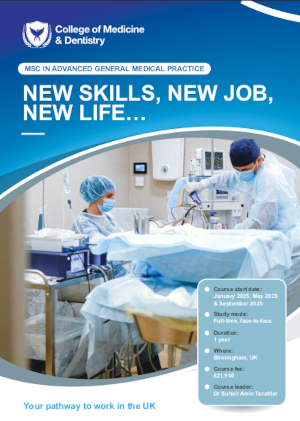Knowledge and Perception of Mothers toward Donor Milk and Human Milk Banking: Experience from Two Centers in Southwest, Nigeria
DOI:
https://doi.org/10.60787/njgp.v20i1.8Keywords:
Nigeria, human milk bank, Donor human milkAbstract
Background: Breast milk is essential for the optimal growth and development of every child. When the mothers’ milk is unavailable, the
World Health Organization recommends donated human milk as the best alternative. However, the use of donated human milk has not been introduced in any part of this country. Therefore, this study aimed to assess the knowledge and perception of mothers on breast milk donation and human milk banking in Nigeria.
Methodology: A structured, pretested self-administered questionnaire was used for data collection. Mothers attending child welfare clinics and the mothers in the newborn unit of two hospitals in Southwest Nigeria were recruited into the study. Data were analyzed using the SPSS version 22.0.
Result: A total of 402 mothers were included in the study. The mean age was 29.8 ± 5.6 years. Forty-ix percent of the women were aware of human milk banking, and the majority (56.8%) heard about this from a health professional. 39.8% were willing to feed their babies with milk from human milk bank (HMB), and 62.1% were ready to donate their milk. Most of the mothers who were unwilling to feed their babies with milk from HMB reported personal reasons as responsible (40.3%). Factors associated with willingness to feed babies with milk from HMB include occupation (P < 0.001), education (P < 0.001), marital status (P < 0.001), and religion of the mothers (P < 0.005).
Conclusion: The knowledge of women in Southwest Nigeria on breast milk donation and HMB is suboptimal. There is a need to educate the populace for effective implementation.
Downloads
References
Goodfellow HE, Reimers P, Israel-Ballard K, Coutsoudis A. Perceptions of community-based human milk banks before and after training
in a resource-limited South African setting. S Afr J Child Health 2016;10:83-6.
Michaiel G, Antunes M, Shaik S, Turner J. Health practitioners knowledge, beliefs, and attitudes regarding the use of donor human milk
in neonatal intensive care. Matern Pediatr Nutr 2016;2:1-4. doi:10.4172/mpn.1000108.
Critch JN; Canadian Paediatric Society; Nutrition and Gastroenterology Committee. Nutrition for healthy term infants, birth to six months: An
overview. Paediatr Child Health 2013;18:206-9.
Imdad A, Yakoob MY, Bhutta ZA. Effect of breastfeeding promotion interventions on breastfeeding rates, with special focus on developing
countries. BMC Public Health 2011;11 Suppl 3:S24.
Coutsoudis I, Petrites A, Coutsoudis A. Acceptability of donated breast milk in a resource limited South African setting. Int Breastfeed J
;6:3.
Kennaugh J, Lockhart-Borman L. The increasing importance of human milk banks. EJ Neonatol Res 2011;1:119-24.
World Health Organization. Infant and Young Child Feeding: Model chapter for Textbooks for Medical Students and Allied Health
Professionals. WHO Geneva; 2019. Available from: https://apps.who.int/iris/handle/10665/44117. [Last accessed on 2021 Aug 18].
NICE clinical guideline 93. Donor breast milk banks: the operation of donor milk bank services. The Centre for Clinical Practice at NICE.
Available from: https://www.nice.org.uk/guidance/evidence. [Last accessed 2021 Nov 4].
Katke RD, Saraogi MR. Socio-economic factors influencing milk donation in milk banks in India: An institutional study. Int J Reprod Contracept Obstet Gynecol 2014;3:389-93.
Arslanoglu S, Ziegler EE, Moro GE; World Association of Perinatal Medicine Working Group On Nutrition. Donor human milk in preterm
infant feeding: Evidence and recommendations. J Perinat Med 2010;38:347-51.
Bertino E, Giuliani F, Occhi L, Coscia A, Tonetto P, Marchino F, et al.Benefits of donor human milk for preterm infants: Current evidence.
Early Hum Dev 2009;85:S9-10.
Mackenzie C, Javanparast S, Newman L. Mothers’ knowledge of and attitudes toward human milk banking in South Australia: A qualitative
study. J Hum Lact 2013;29:222-9.
Demirtaş B. Should there be breast milk banks in Turkey? Anadolu Journal of Nursing Health Sciences 2011;14:73-7.
Naicker M, Coutsoudis A, Israel-Ballard K, Chaudhri R, Perin N, Mlisana K. Demonstrating the efficacy of the FoneAstra pasteurization
monitor for human milk pasteurization in resource-limited settings. Breastfeed Med 2015;10:107-12.
Leslie K. Survey Sampling. New York: Wiley; 1965.
Iloh KK, Osuorah CD, Ndu IK, Asinobi IN, Obumneme-Anyim IN, Ezeudu CE, et al. Perception of donor breast milk and determinants of
its acceptability among mothers in a developing community: A cros-sectional multi-center study in south-east Nigeria. Int Breastfeed J
;13:47.
Abhulimhen-Iyoha BI, Okonkwo IR, Ideh RC, Okolo AA. Mothers’ perception of the use of banked human milk for feeding of the infants.
Niger J Paediatr 2015;42:223-37.
Gürol A, Ozkan H, Celebioğlu A. Turkish women’s knowledge and views regarding mother’s milk banking. Collegian 2014;21:239-44.
Ekşioğlu A, Yeşil Y, Turfan EÇ. Mothers’ views of milk banking: Sample of İzmir. Turk Pediatri Ars 2015;50:83-9.
Women’s Learning Partnership (WLP). C20 summit Brings WLP Turkey, Leading Civil Society Activists Together for Economic AgendaSetting (Statistics on Turkey}. 2015. Available from: http://www.learningpartnership.org/turkey. [Last accessed on 2021 Jul 28].
Pew Research Center. Internet Access Growing Worldwide but Remains Higher in Advanced Economies; 2016. Avaiable from: https://www.
pewresearch.org/global. [Last accessed on 2021 Aug 18].
Can S, Ünülü M. Knowledge of mother regarding wet nursery and breast milk banking. Ankara Med J 2019;19:60-70.
Azema E, Callahan S. Breast milk donors in France: A portrait of the typical donor and the utility of milk banking in the French breastfeeding
context. J Hum Lact 2003;19:199-202.
Published
Issue
Section
License
Copyright (c) 2024 Nigerian Journal of General Practice

This work is licensed under a Creative Commons Attribution-NonCommercial-ShareAlike 4.0 International License.








